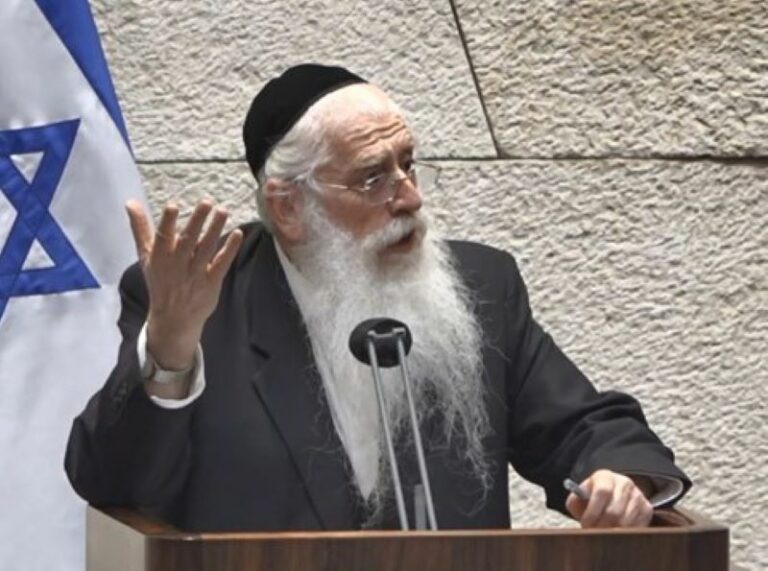 You may have read a story we covered a few weeks ago about a Jewish sports agency called Hazan Sports Management. This week, the agency’s General Manager, Efraim Wakschlag, has successfully published an analytical book about NBA basketball.
You may have read a story we covered a few weeks ago about a Jewish sports agency called Hazan Sports Management. This week, the agency’s General Manager, Efraim Wakschlag, has successfully published an analytical book about NBA basketball.
Efraim, a graduating senior at Yeshiva University, enjoys spending his free time writing. Efraim doesn’t only sit around writing about basketball though. One of the reasons the production of this basketball book is such a tremendous accomplishment is because Efraim spends an incredible amount of time learning in the beis medrash every day. Efraim happens to be a top talmid in Yeshiva University’s Yeshiva Program, and at his graduation, will be receiving an award for his hasmadah and Torah dedication over the course of his time at Yeshiva University. Furthermore, Efraim has been compiling a work in which he analyzes and writes chiddushim on various Rashis in Bereishis and Shmos.
In his insightful and humorous basketball book called “10 Squared: An Unconventional Analysis of the NBA,” Efraim develops a number of NBA-related “chiddushim” with in-depth analysis and extensive evidence to back up his arguments. Efraim has met with a number of reputable analysts and former basketball players, many of whom have lent their “haskamas” including Tamir Goodman, who is also known as “the Jewish Jordan,” Efraim’s dedication to Torah while running a sports agency and writing a basketball book should serve as a reminder to all of us of the importance of keeping our hobbies in balance while maintaining every day learning.
(Studio B – YWN)











7 Responses
“Efraim’s dedication to Torah while running a sports agency and writing a basketball book should serve as a reminder to all of us of the importance of keeping our hobbies in balance while maintaining every day learning”
Yes, definitely. What an emesdika role model. Halivuy, we should all be zoche to have such “Masmidim” as children. LOL.
This article is the only hit on Google for that title. Not even on Amazon. Sooo… not sure what we mean by “publishes” here.
Sounds like an excellent for many of my sports minded bochur in.
I found your book on Amazon. Can’t wait to read it!
@Dan Daoust If you go to Amazon and search for “10 Squared: An Unconventional Analysis of the NBA,” you will find Efraim’s book.
Do the editors on YWN even read these articles?
WHY would this article appear on this site? This article does not belong on a frum site and goes against everything in the frum world.
1) This article was clearly written by the author or a friend of his. In fact I challenge whoever wrote it to provide their name and contact info, to prove me otherwise.
2) I have no problem with someone having interests besides learning, nor do I have a problem with college (even YU). But when most if not all students in the Yeshiva University Yeshiva Program receive the same award that this author is claiming to receive, its not very significant and in no way actually shows any real Hasmada. Furthermore, how can one get an award for learning, when they spend 1/2 their day in college and then have enough free time to write a book and work at a Sports Agency. Clearly this “author” is misguided in what it means to be a Ben Torah and what it means to Learn.
3) Lastly, the people who this author highlights the most in his book, are not the type of people that any of us would want our families to use as a role model.
My response to this article was “okay, sounds interesting.” As a basketball fan myself, I read this book. I am also frum and I was taken aback by some the comments; there seems to be an unfortunate misunderstanding here. @Not getting involved, why the sarcasm? The author of the article seems to simply be saying that while a person strives for accomplishments in the secular world (or we can say madda, in YU terms), he should always be on top of his daily learning. That sounds inspiring to me. If you take issue with Torah U’Madda, say so, but don’t scorn the basketball author/YU talmid just because he (seemingly) conducts his life with that hashfaka.
I think the largest aspect of the misunderstanding is that some commenters seem to be under the impression that this article is saying or implying that the talmid’s being a basketball fan is directly correlated with him being a masmid; it doesn’t seem that way to me at all. If you read the article, these are two totally separate descriptions of the student: on the one hand, the article describes, the student seems to enjoy writing about basketball, while on the other hand, he seems to enjoy learning. Anyone with a predisposition to shun secular pursuits will read this article how he wants to—thus blending the learning and sports writing to a false extent, which the article does not do if you read it carefully.
That said, @frumbutnotyeshivish, I truly admire your staunch position/attitude towards frumkite and learning, but I think it is completely unreasonable to say that this article “goes against everything in the frum world.” Contrary to what you claim, it sounds like you actually do have a problem with YU. Why do you disparage the YU hasmada award? I do not know anything about this award, but I’m not sure how much you know about it either. I do happen to know, however, that people like the talmid described in the article learn all morning and do not start secular classes until well into the afternoon. Moreover, your comment that the fact (not sure if it is actually a fact, though) that many YU students (may) receive this award shows that it is worthless and does not signify real hasmada is almost silly—why not be dan likaf zechus and be pleased that Yeshiva College apparently produces many masmidim (if it is even true that multiple graduates receive this award)? If you disagree with YU’s perception of hasmada, that’s fine, but then your problem is with YU, and not with the basketball author.
As well, with what evidence do you posit that the author is misguided as to what it means to learn? Read the article again. Just because the third paragraph of the article describes this bachur’s pursuit in writing a basketball book, why on earth do you take that to undermine his learning? Should people not aspire to do other things in this world in addition to learning? Again, it looks to me as the question of personal taste or distaste for the hashkafa of Torah U’Madda.
Finally, although I cannot respond to your first comment because I do not know who wrote the article, I actually agree with the content of your third comment. I believe that we should not look to NBA players as Torah role models. This is not a question in my mind and I’m sure not a question in most peoples’ minds. However, there is one glaring mistake involved in your comment. Where on earth did you come up with the idea that the author of this book is endorsing NBA players as role models? I don’t see that written anywhere in this article. The basketball author simply wrote a book about the NBA. If a Jew publishes a book about politics, does it mean that he personally endorses each political figure he mentions in the book (and especially as Torah role models)? Certainly not. And definitely not when the book itself many times states that certain figures are actually not good people, which this basketball book does in regard to many NBA players it mentions. This article says nothing to imply that the basketball author thinks one should look at NBA players as role models (Torah or in general), nor does the article itself indicate this. If it did, I would probably also take issue with it. But it doesn’t. So why bring up an argument that is not made in the article at all?
In conclusion, I think the most important point here is whether or not readers are comfortable with the pursuit of secular knowledge. I say kudos to the basketball author/YU talmid for involving himself in both Torah learning and a kosher secular pursuit. I believe sports is a great outlet for guys that are not able to sit the entire day in the beis and learn. Halivay all bachrim should be able to, but not all are. In that case, do we prefer that they spend the other half their day out on the streets or involving themselves in inappropriate activities, or do we prefer that they get involved in business for a parnasa or other kosher activities that interest them?